Understanding suffixes Grammar Worksheets for Ages 4-7
7 filtered results
-
From - To
Discover the exciting world of language with our "Understanding Suffixes Grammar Worksheets" designed specifically for children aged 4-7! These engaging printable worksheets help young learners grasp the concept of suffixes, enhancing their vocabulary and writing skills. Through fun activities, kids will explore how suffixes alter the meaning of words, fostering creativity in their language use. Our worksheets include colorful illustrations and age-appropriate exercises that make learning enjoyable. Perfect for home or classroom use, these resources encourage critical thinking and language development in early learners. Start your child’s journey toward becoming a confident writer today by exploring our interactive suffixes worksheets!
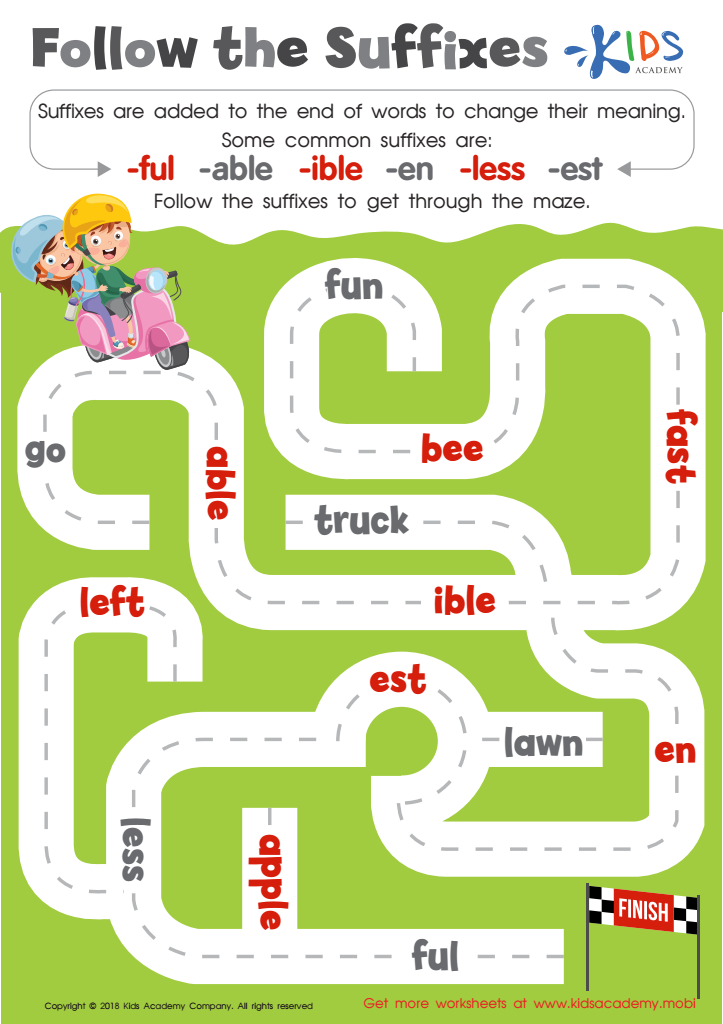

Reading: Follow the Suffixes Worksheet
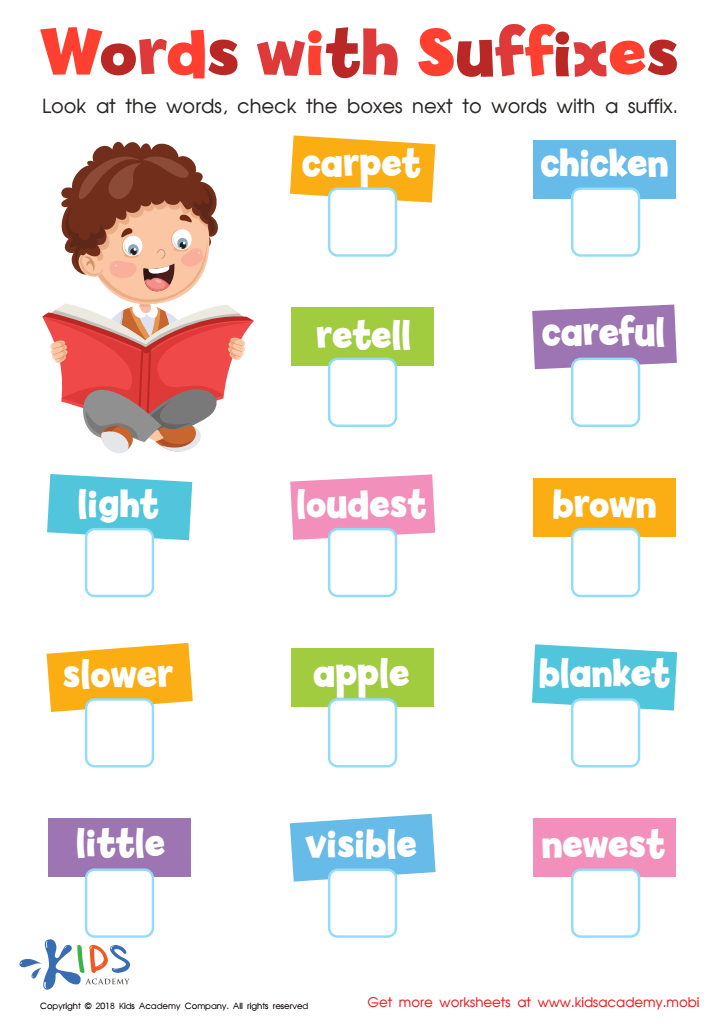

Reading: Words With Suffixes Worksheet
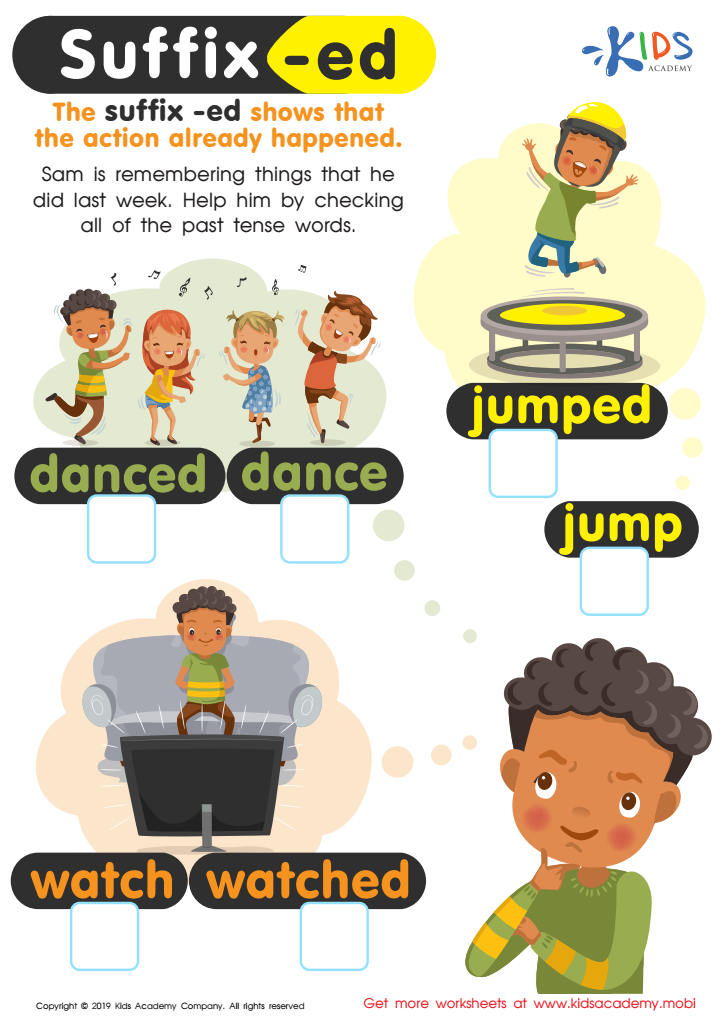

Suffix-ed Worksheet
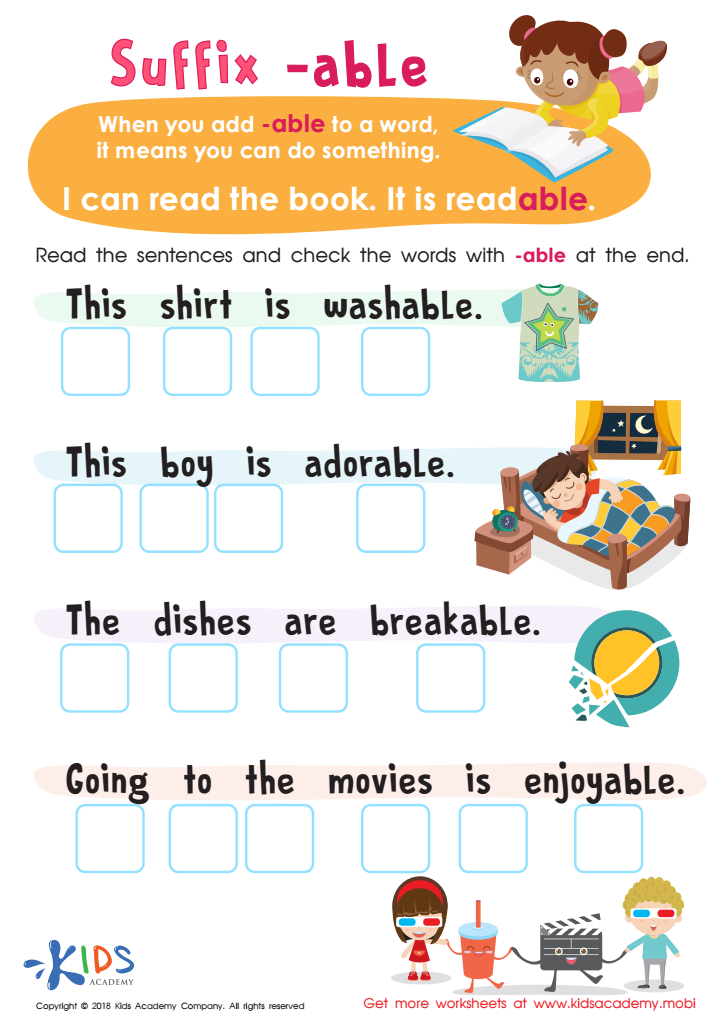

Suffix -Able Worksheet
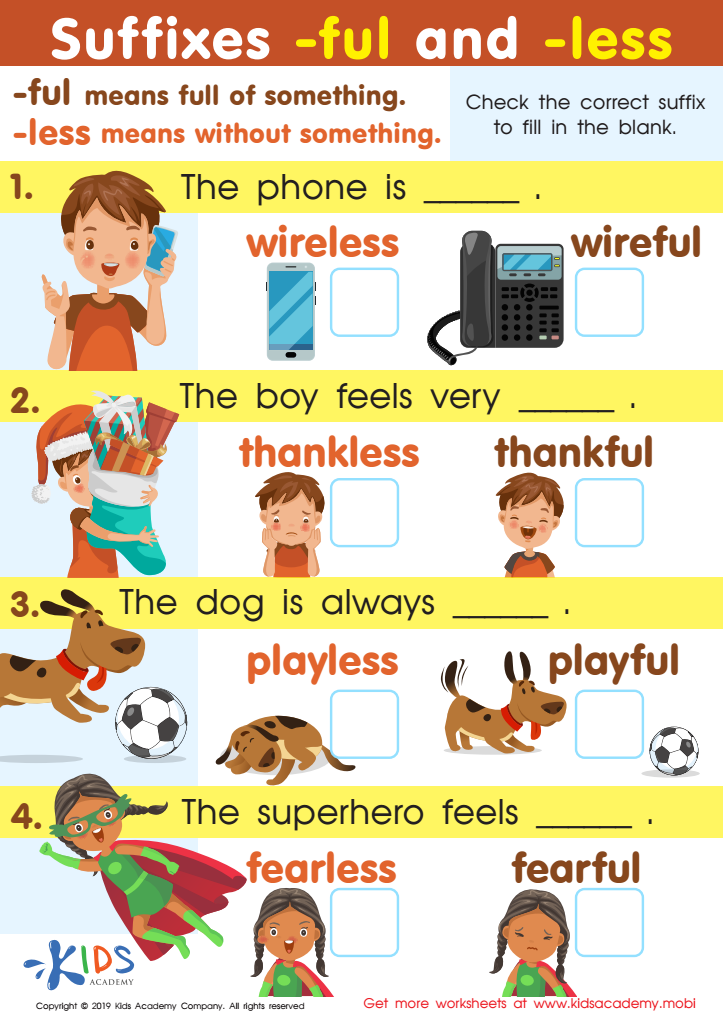

Suffixes –ful and –less Worksheet
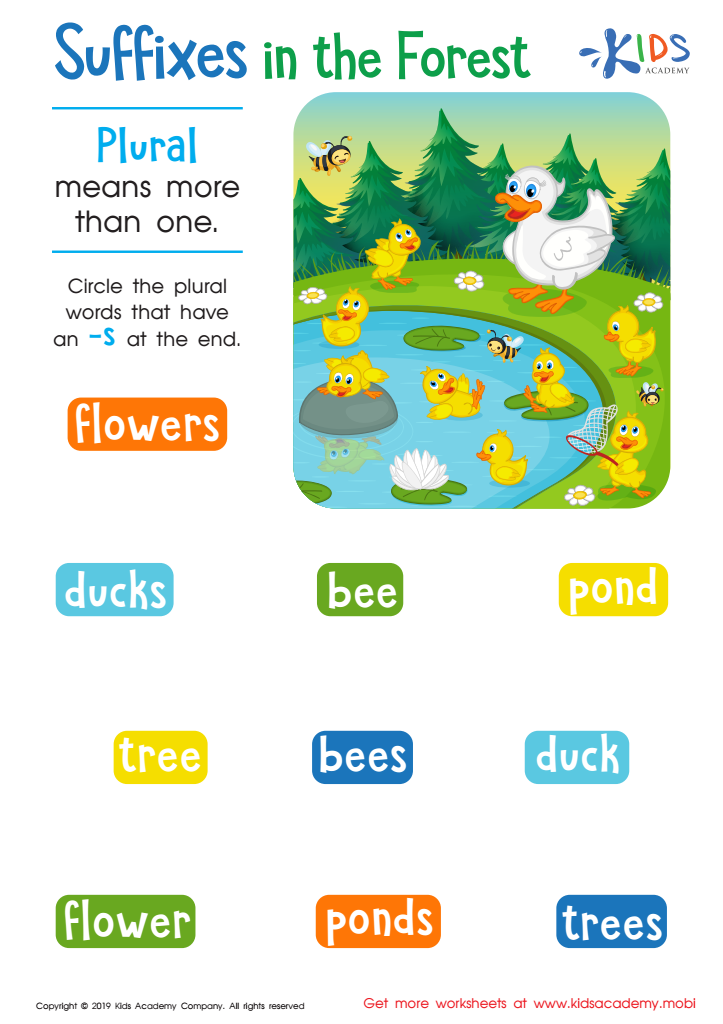

Suffixes in the Forest Worksheet
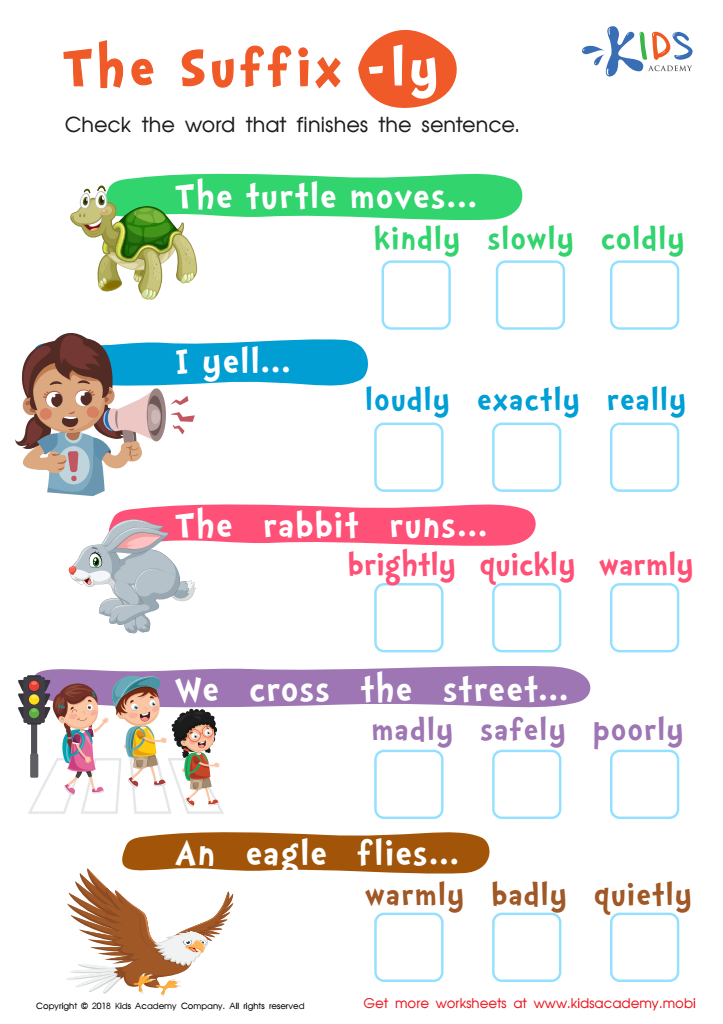

The Suffix -Ly Worksheet
Understanding suffixes is crucial for children aged 4-7 as it lays a strong foundation for their reading and writing skills. Suffixes are word endings that modify the meaning or grammatical function of a word. By grasping how suffixes work, children can unlock the meanings of new words and enhance their vocabulary. For example, knowing that "happy" can become "happiness" allows children to explore different forms and meanings of familiar words.
Furthermore, recognizing suffixes aids in literacy development. When children learn to read, decoding words is easier when they understand the parts that make them up. This comprehension boosts their confidence and encourages a love for reading. As they progress in school, teachers can assign more complex texts that utilize suffixes, developing critical thinking and analytic skills.
Additionally, teaching suffixes enriches children’s writing abilities. Suffixes enable them to expand their vocabulary naturally, express ideas more precisely, and engage in storytelling. As educators and parents foster this understanding, they provide children with the tools to communicate effectively and articulate their thoughts.
In summary, emphasizing suffixes not only strengthens language proficiency but also builds the confidence needed for lifelong learning and expression. This foundation is paramount for their academic and personal growth.
 Assign to My Students
Assign to My Students





















